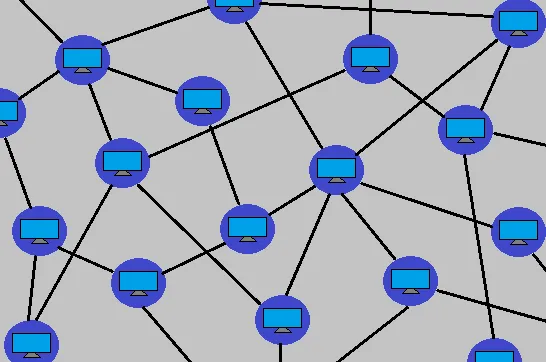I briefly want to speak about some thoughts about blockchains, data privacy, social networks, centralized trends, and Wannabe Web 3.0. More than anything I'd like to provoke discussion on this topic because the spread of information and the challenge of deeply held beliefs leads to progress.
Here's a challenge.

The nice thing about reality today is that it is optional
I think that Bitcoin is a successful experiment. But perhaps that is a bad thing. While I think everyone here desperately thinks we need to reverse the current centralization trends, I feel like there is too much focus on what Bitcoin did. Or to put it bluntly, there is too much focus on recreating the magic (and the monetary value) via blockchain and then market features that lack any philosophical staying power. Too many people are focused on recreating money. There are entire domains of problems that are simply being ignored for the sake of money. Or even worse, there are problems whose solutions are being undermined by the allure of money.
Take data ownership. Granting users the power to wield and yield their data with complete control. Cryptography and some of the networking concepts can go a long way here. But instead of focusing on things like data privacy and localized data, we have the blockchain, which, when you think about, doesn't really address these issues. You don't own your data on a blockchain because everyone running a node gets access to it. Once you publish the data, it's fair game.
For things like social media and networking applications, users don't really care about strong immutability and data permanence. While for individuals, a small subset of information might warrant a high degree of data redundancy, random posts and conversations would be better served as data that can be saved, but has the option of being forgotten. And some data should simply never have the option of falling into certain individual hands. One can't do that with a blockchain because it is a global database that is a pernament record of all history.
For most social media applications, especially those with high throughput of information intended for small groups of people, localized databases that store partial states of information that are occasionally pruned make a lot more sense and are more in line with the original conceptions of the internet pre-Web2.0. Web 2.0 referring to the user account based system relying on monolithic servers serving millions of client users that feed them information. The centralized internet model of today.
I have heard people frequently refer to the use of blockchain as a backend to web applications as Web3.0, but I'm afraid that is not as much of a innovation as it may appear initially. Most models simply replaces centralized servers with centralized servers that utilize blockchain technology. If it is impractical for most users to run the databases while they use them, then whats the point of having a database where that is the purpose of that infrastructure? Sure, you have redundancy, but at a massive cost to the end user, which will in most cases simply treat the Wannabe Web3.0 application as any other server. Since they don't control the interact with the database as they don't run it, one cannot in good conscious claim they have "data ownership".
To conclude, I think blockchain technology is kind of overrated and perhaps is not as applicable to certain domains that would benefit from decentralization. Rather than making databases larger, we should focus on localization. Most things on the internet don't require redundancy or overwrite resistance. Most users on the internet are not going to run nodes that are Terabytes in size. Localized databases with key brokering between users on a peer-to-peer basis has more potential to shift users from a centralized way of operating to a decentralizing way. Bitcoin has a strong reason to utilize global state, but it is kept simple and does one thing well, limiting the costs of redundancy. I'm not convinced social media needs everyone to maintain copies of the global state across the globe. Not only it is a colossal waste of space in many cases, but it falls into the traps of the centralized monoliths we claim that we are trying to fight.
